Three of the five worst roads in Australia for traffic congestion are in Melbourne, a new report by the country's peak roads and traffic agency has found, with the worst of them a road that rarely features in reports or political debates about the city's biggest bottlenecks.
Burke Road is a north-south arterial and tram corridor that extends for 12 kilometres through some of Melbourne's most liveable suburbs, such as Kew, Camberwell and Malvern East.
More National News Videos
Road works traffic hell set for Melbourne
It will be slow going over the Christmas period on some of Melbourne's major roads with construction works underway for a full month.
It is also the worst road in the country for traffic delays, according to a report by AustRoads.
Traffic on Burke Road moves 79 per cent slower on average than it would if there were no congestion, the report found, a rating that eclipses all of Melbourne's, and Australia's, other notorious bottlenecks.
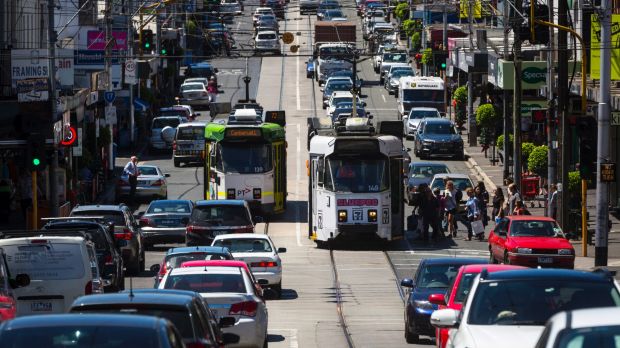
The report found that seven of the country's 10 most congested roads are in Sydney, and three are in Melbourne.
Punt Road is Australia's third worst, and Toorak Road rounds out the top five.
Punt Road is also the third slowest road in Australia, with average speeds of just 16.1 km/h.
It is the only Melbourne road in the slowest 10.
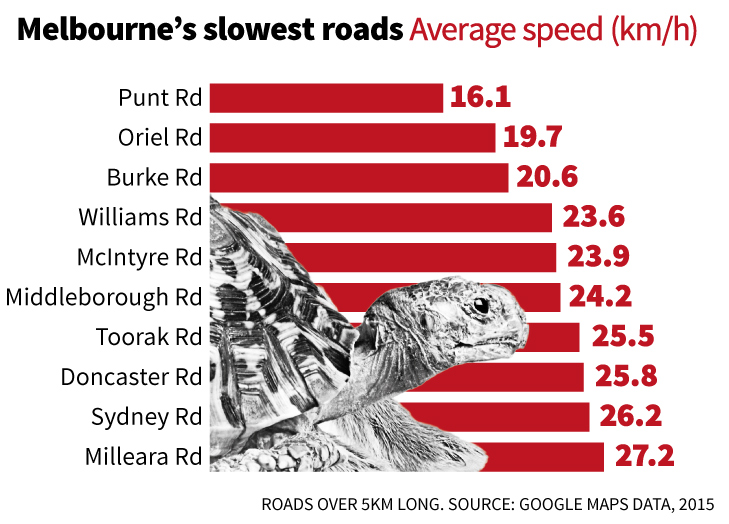
To measure congestion levels, the report compared the average travel times motorists face on urban roads in Australia with travel times during free-flowing conditions – a measure defined as "travel time delay".
It used data from Google Maps over an 11-week period between September and November 2015, noting Google's traffic data is the most commonly used by Australian road users.
"The review has unashamedly taken a customer-centric view of congestion with measures that are most relevant to their lives and journeys," AustRoads said.

The review excluded roads that are shorter than five kilometres long, so its results would not be skewed by small local streets.
It found traffic delay is worse in Melbourne and Sydney than other capitals, though Melbourne's roads perform significantly better than Sydney's, which is "likely a consequence of its historically planned road network".
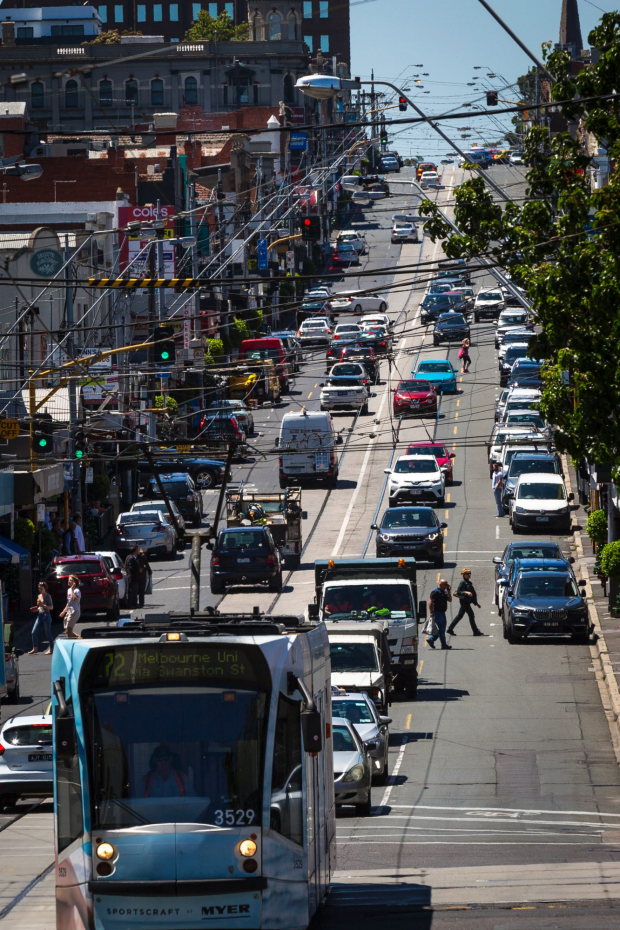
The average speed for traffic on Burke Road is little more than 20km/h. Photo: Chris Hopkins
Five of Melbourne's six slowest roads are north-south arterial roads in Melbourne's eastern suburbs, including Middleborough Road in Box Hill, Oriel Road in Ivanhoe and Heidelberg West and Williams Road in Prahran.
RACV general manager of public policy Brian Negus said the city had a north-south travel problem in its eastern suburbs because of a lack of connectivity in its freeway network.
"What you find on many north-south roads is that a lot of it is actually people moving east-west and using north-south roads," Mr Negus said.
"Hoddle Street and Punt Road is a classic example. Not many people drive from end to end, they use bits of it."
He said the study underlines the fact that Melbourne lacks a dedicated north-south transport link east of the CBD, with major roads instead having mixed uses such as tram routes and shopping strips.
The RACV has repeatedly called for a major upgrade of Hoddle Street, including a tunnel and grade separated intersections, to fulfil this purpose.
Punt Road, meanwhile, has a public acquisition overlay that would enable VicRoads to buy and demolish 140 properties and widen it into a six-lane road.
The Andrews government is reviewing the recommendations of a 2015 planning panel hearing into whether to keep the overlay so VicRoads could fulfil its long-term plans, or lift it to give property owners certainty.
EastLink, incidentally, is Melbourne's fastest and most delay-free road, the 39-kilometre tollway having an average travel speed of 93.5 km/h.
Other relatively free-flowing roads in Melbourne include the Western Freeway, the Metropolitan Ring Road and the Princes Freeway.
AustRoads said its report, titled Congestion and Reliability Review, was intended to provide planners with a greater understanding of traffic issues in their city and pointers to how they might be fixed.
"This report provides a baseline for how our road networks perform today, and practical frameworks to help road agencies to improve that performance in future," it said.


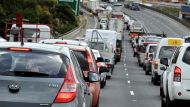





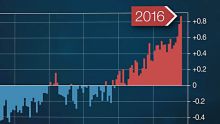





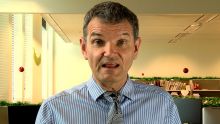

0 comments
New User? Sign up